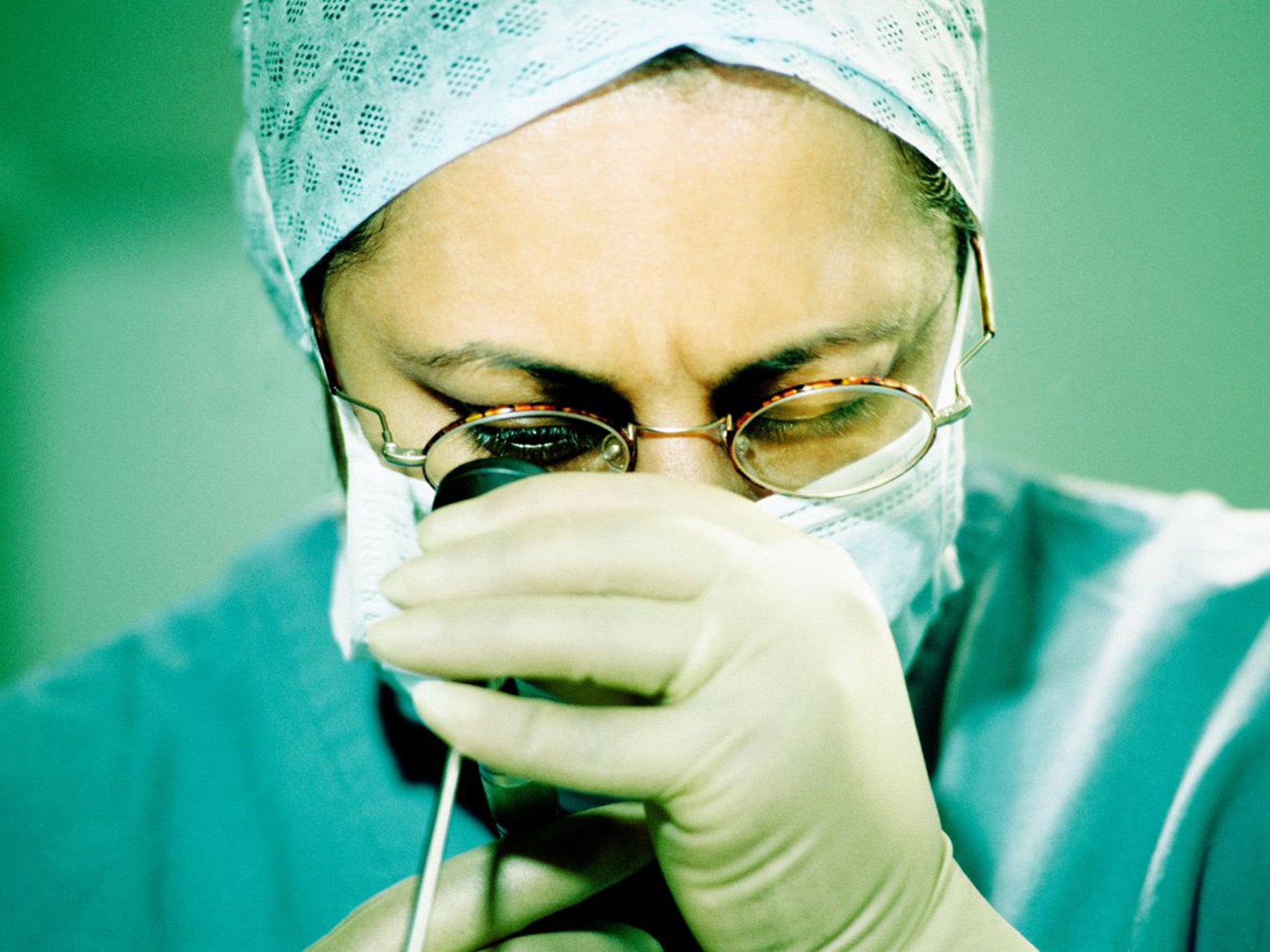NHS introducing targets to ensure cancer patients given effective diagnosis or all-clear within four weeks
Health Secretary Jeremy Hunt said the service had a 'duty' to make sure the period between referral and result was as short as possible

Your support helps us to tell the story
From reproductive rights to climate change to Big Tech, The Independent is on the ground when the story is developing. Whether it's investigating the financials of Elon Musk's pro-Trump PAC or producing our latest documentary, 'The A Word', which shines a light on the American women fighting for reproductive rights, we know how important it is to parse out the facts from the messaging.
At such a critical moment in US history, we need reporters on the ground. Your donation allows us to keep sending journalists to speak to both sides of the story.
The Independent is trusted by Americans across the entire political spectrum. And unlike many other quality news outlets, we choose not to lock Americans out of our reporting and analysis with paywalls. We believe quality journalism should be available to everyone, paid for by those who can afford it.
Your support makes all the difference.The National Health Service will introduce a new cancer target to ensure patients are given a definitive diagnosis or the all-clear within four weeks of being referred by their GP.
Jeremy Hunt, the Health Secretary, said the health service had a “duty” to make sure the “period of uncertainty” between referral and result was as short as possible.
A target of 95 per cent of patients getting their results within 28 days was one of the main recommendations of a joint NHS England and Cancer Research UK task force, which reported earlier this year on how the NHS could speed up cancer diagnosis, improving the chance of successful treatment and saving thousands of lives a year.
It is hoped the new target can be achieved for all patients within five years, with estimates suggesting 11,000 lives a year could be saved through earlier diagnosis. The Department of Health said that funding would be allocated from the £8bn annual increase promised to the NHS by 2020 in order to achieve the aims of the task force.
This will include training 200 extra staff to perform endoscopies – key diagnostic tests for certain cancers – by 2018.
Last week Cancer Research UK highlighted a shortage of endoscopy staff and other cancer diagnosticians. The new staff would enable 500,000 more endoscopies to be carried out by 2020. Thousands more patients will also have their cancers genetically tested to identify potential individualised treatments.
Mr Hunt said: “For people who are worried they may have cancer, waiting for that all important test result is a nerve-wracking time. We have a duty to make sure this period of uncertainty is as short as possible.
“For those who get the all-clear, they will have peace of mind sooner. Those who sadly have cancer will get treatment much quicker and we will save thousands of lives as a result.”
Join our commenting forum
Join thought-provoking conversations, follow other Independent readers and see their replies
Comments